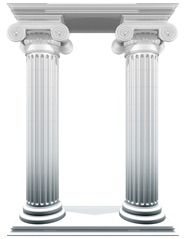The Support
A poem.
God provides the foundation
On which our home is built
A solid base that anchors it
To soft soil or shifting sand
Your strength is the structure
That keeps this delicate form
From blowing, washing away
When the wind and rain come
Your dedication is the frame
That holds up this fragile life
As it reaches toward heaven
Buttressing its soaring wings
And though we need the Lord
Who shelters and protects us
Our home would lie in ruins
If not held together by you
For my wife.
M.G. Edwards
July 2012

